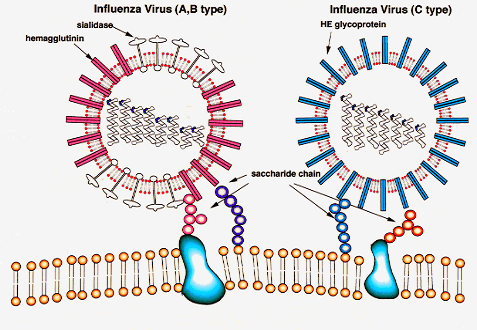
What are the different types of
influenza viruses?
There are three types of influenza viruses: A, B and C.
- Virus A and B cause seasonal flu while C is typically associated with mild illness in children and young adults.
- Influenza B and C virus have limited genetic diversity as both are restricted to a single specie each.
- Influenza type A virus has several sub-species. These species are classified on the basis of different combinations of hemaglutinin (HA) and neuraminidase (NA) - the proteins on its surface. For instance the H1N1 is an A type influenza virus that has an HA1 and an NA1 protein.
- Except H17N10, all known subtypes of influenza A virus can infect birds. The H17N10 virus is found in bats.
- At present, only two of these viruses - H1N1 and H3N2 - are in general circulation among human beings.
- Other subtypes typically infect animals. For example, H7N7 and H3N8 cause illness in horses, while H3N8 is found in dogs.
What is the avian influenza virus?
- These are the viruses that are circulating among birds and typically don't infect human beings. There are, however, three prominent subtypes of the avian influenza virus that are known to infect both birds and people.
These are avian influenza A H5, H7 and H9. Nine potential subtypes are known for each of these three subtypes.
- Of these 27 known subtypes, so far only 5 have infected humans. Among them, avian influenza A (H5N1) is the most well known.
- It is circulating among poultry in 15 countries.
- In the past H7N2, H7N3, H7N7 and H9N2 have also infected human beings causing effects from mild illness to death.
Why is the China bird flu so alarming?
- On April 1, the World Health Organisation reported three cases of H7N9 infection in China. This is the first time that the H7N9 virus has infected human beings.
- The virus is different from the H7N9 virus found in birds. Also, it's a novel virus for human beings and it might have the potential of causing a pandemic if changed into a virus that could spread from human to human.
- Influenza viruses constantly change and it is possible that this virus may also has that ability.
- Also, there is no vaccine available for preventing H7N9 infection.


